- Home
- Неизвестный
8 Great Hebrew Short Novels Page 3
8 Great Hebrew Short Novels Read online
Page 3
Bibliographic Note
All anthologies must, of selective necessity, exclude works of accomplishment, and this volume is no exception. The editors wish to make a point of naming some of those works, absent here, worthy of the reader’s attention. S. Yizhar was born in 1916, in Rehovot, Israel, and is the foremost writer of the Palmach period, before and after the War of Independence in 1948. A Faulknerian romantic with an obsessive attachment to his native wild landscape, and to his own convoluted rhetoric, Yizhar has written, besides his outstanding long novel Days of Ziklag, many strong stories and at least one beautiful long novella, Midnight Convoy (1950), about a small platoon of young soldiers trying to make a road at night for a convoy of trucks, during the 1948 war. For many, Midnight Convoy will be too slow, too concerned with minute details of the land, too excessive in its depiction of the romantic young protagonists. For others, Midnight Convoy is pure literary pleasure.
Aharon Appelfeld has enjoyed many English-language successes, of which the most recent is his Story of a Life, translated by Aloma Halter. Born in Bukovina in 1932, a child of the Holocaust who arrived in Israel in 1945 as an orphan, he has produced a host of novels and stories dealing mainly with the Holocaust. His powerful short novel, Badenheim 1939, is a horror fable set in a tiny European resort on the eve of the destruction of its Jewish inhabitants.
A newer writer is Yitzhak Ben-Ner, the author of several collections of stories, many first published in the newspapers. His best work remains an early novella, Rustic Sunset, which forcefully chronicles the disillusionments and guilty lusts of a brawny young hero in today’s Israel. But for the limitation of space, we would also include works by two other distinguished writers, David Shahar and Amalia Kahana-Carmon.
Finally, we must mention Ya’akov Shabtai. When he died of a heart attack at age forty-six, in 1981, Hebrew literature lost one of its finest novelists. A playwright and storywriter, Shabtai turned to long prose works relatively late in his life, and produced, in the 1970s, a novel of enormous sophistication and power, Past Continuous. When he was stricken, he was two-thirds through a second novel. Unfortunately, this superb writer had written no novella to include here, but our respect and affection are made clear by our dedication of this volume to his memory.
Canaan, N.H., and Jerusalem, 1981–1982
Uri Nissan Gnessin
Sideways
Translated by Hillel Halkin
Chapter one
The first time that Nahum Hagzar set foot in that pleasant house at the far end of the quiet street was due to some trivial reason that was forgotten by him no sooner than it had occurred. Much to his surprise, he met his stout neighbor there, young Hanna Heler, with her unnaturally loud staccato laugh, and conversed with her for the first time, too. Yet he didn’t stay long on that occasion, for he was dreaming of other things; feverishly, his coattails flapping behind him, he hurried home to await the new job and the challenging life that would begin the next day, here in this provincial town to which he had chosen to move from Vilna.
The next morning, however, turned out to be leaden and dull. The walls were cheerless, the ceiling was low, and the windowpanes were streaked as though with sweat. He sat chin in hand for a long while, biting his lips; then suddenly he roused himself, found some excuse to call on his neighbor, and went together with her to that house at the end of the street. Inside were new faces. Sitting back a bit from the round table was a lively young man in a semi-Oriental position, his two arms hugging his outthrust knee while he rocked back and forth and made everyone laugh at his jokes. This time Hagzar stayed longer. Indeed, as he passed through the entrance hall on his way out, a new peal of laughter from the room he had left so intrigued him that, after briefly regarding the gray windows, he turned around and rejoined the company inside.
His third visit to the house was prompted by the same young man. One morning the latter dropped in on him for a while, and after a friendly chat suggested that they pay a call on Rosa. By then Hagzar knew that his new friend was the only son of one of the town’s leading citizens; donning his coat while thinking of Rosa’s pretty face and her pale, pure smile in the misty glow of the shade-spreading lamp, he reflected, not for the first time, what strangers all these people still were to him.
Subsequently he stopped by several more times. He often saw Ida, the pale lycée student, and her older sister Manya, who planned to resume her studies soon as well and was forever wandering in and out and looking for something while humming jerkily under her breath. Rosa was rarely there, except when once or twice he found her laughing prettily and with infectious gaiety at the jokes of the lively young man.
The mother of these three sisters had passed away early in the spring of that year, and their father, Simha Baer, was away on an extended business trip in the Ukraine. At the time Hagzar’s large wicker trunk, which was filled with books and manuscripts, still stood unopened by the door, exactly as it had arrived from Vilna two weeks before, for he had not yet finished arranging his room. He had come to the provinces hoping to find the leisure to carry out his many literary projects, and afterwards to travel in Europe, as had always been his dream.
Before long the trunk was opened and he had set to work. He had four pupils to tutor every morning, the hours of which were divided among their houses; afternoons were free for his own pursuits. That summer a Hebrew journal had published a long article of his on Hebrew literature, replete with copious citations. Much of the summer was taken up with founding a local literary society, a long-standing ambition of his; in addition, he was hard at work on a second article, upon completion of which he expected to be paid for both contributions together. In fact, he was already making plans for studying abroad the following year; yet after some brief financial negotiations with the editors of the journal, he was forced to admit that he had made a slight but regrettable miscalculation—and so he turned his attentions instead to the composition of an outline for a major series of essays on the modern Hebrew novel, which boded no end of work.
Afterwards, when autumn came and—buttoned up in his bulky overcoat and wearing his high boots—he had to knead with his feet several times each day the thick quarter of mud into which the town square was transformed, he occasionally passed Rosa in the street, acknowledging her when he did with a brief nod of his head. Once, however, when they chanced to be going in the same direction, he learned from her that they had a mutual…well, not exactly a friend, but an acquaintance: Gavriel Carmel, who had himself been a teacher in the same town several years before. In those days Rosa had been staying with an aunt in the country and had come home only infrequently, so that she and Carmel did not meet more than a few times. Hagzar, for his part, told her that his friend had been abroad for at least two years now, and that he himself had lost all track of him, having last seen him in Vilna before his departure.
On the same occasion he was also informed that Ida had been his friend’s pupil. And so that evening found him sitting at the round table in the pleasant room, where he had not been for many days, while Rosa stood beside him, one hand on the back of his chair and the other on the red tablecloth. By the misty glow of the shade-spreading lamp the two of them studied the brave, youthfully chaste face that looked up at them from a page of the handsome album. Hagzar’s own face, which had worn a slight smile before Rosa opened the album, was now an image of excitement concentrated on the two large, innocently self-assured eyes that stared back at him from the picture. How distant this face seemed to him—yet how it drained the blood from his own. The trace of laughing mockery upon it, which seemed reminiscent of something and cut to the heart’s quick—that subtle trace that kept reappearing and vanishing into the mystery of those unsullied lips, reappearing with triumphant insolence and vanishing, as though tauntingly, with the cunning of a cat—that laughter haunted him, like the forgotten end of a dream.
Later, while calculating that the photograph must be at least eight years old, he listened to Rosa chatter on about Carmel: ho
w fond he had been of her little sister Ida, whom he had helped prepare for the lycée; how unrecognizable he was in the picture; and how her middle sister Manya, who was two years older than Ida, always used to hide from him, ha ha…There followed a melancholy silence in which the oil lamp burned and the samovar boiled on its yellow stand and was poured bubbling out into glasses, while Hagzar sat quietly staring at the other lamp, the one reflected in the dark glitter of the window by the night outside. By ten o’clock his boots were sinking one by one into the mud of the strange, dark street, his body bent slightly forward as he thought of the warm room and its misty, penumbral glow, of his distant friend Carmel, of Rosa with her kind, intelligent eyes, and of life as a scroll that was pleasantly being unrolled. For a moment, too, he recalled the weak, suffering groan that had reached him as he stood in the dark hallway at twilight—that groan that had seemed, as it were, to solve some problem in arithmetic—and the vexed, secretive whisper that had followed it. He thought of plump, dark-eyed Manya, and of Ida, weak and pale; and upon arriving home he went straight to work, humming a mischievous tune.
After that he began coming often, as a rule in the evenings when Rosa was alone in the room. Jumping up from her dimly lit corner to greet him, she would silently hold out her small, kind hand to him and heighten the penumbra of the lamp. The corners of the room became dimmer, the tall flowers grew indistinct, and the windowpanes gleamed blackly through the parted curtains. Their harmless chatter flowed quietly between them, although by the time he had to leave, the sound of his laughter might often be ringing out loud.
The lively young man was seldom seen anymore. Once or twice he dropped by with an older sister; they sat, joked for a while, and departed. Hagzar no longer felt that these jests were malicious. On the contrary: the young man was careful to hurt no one’s feelings and was certainly no worse than most youths his age. If one compared him to Rosa, who took part in these contests of wit, Hagzar pleasurably observed, with an almost feverish passion, she was far the more venomous of the two: her barbs were so nimble and never failed to strike home. Yet such evenings left him ill at ease, and having walked the guests to the door he gladly forgot them at once.
As soon as they were gone, Rosa would begin to talk volubly about herself, Manya, Ida, her father, or whatever else was on her mind. Her speech had a feverish intensity, which she broke now and then with a softly enigmatic laugh while regarding him with confident affection. Hagzar rose at such times to his feet, tucked his hands behind his back beneath the skirts of his frock coat, and paced step by step across the soft carpet, absentmindedly enjoying each squeak of his shoes as they sank into the pliant fabric. When Rosa had finished, it was his turn to confide his thoughts to her, and so they chatted and laughed, or perhaps even sang quietly to themselves or went out for an evening stroll.
Occasionally they were joined in the room by plump, virtuous Manya, whose small, dark eyes had a look in them of mocking suspicion. Placing her open book before her on the table and slipping her hands beneath her black smock, she sat wordlessly on the edge of the couch as if proudly waiting for something. The conversation ignored her, except that now Hagzar fingered the ends of his lead-colored mustache and wrinkled his high forehead repeatedly. The first few times that this happened Manya soon rose again and returned to her room with a bitter air of injured pride, while Hagzar continued to pace back and forth and hum snatches of old melodies to himself, unconsciously biting his bottom lip. Gradually, however, Manya’s visits grew longer; as though out of spite she sat silently facing him, while he slowly took on the look of a man struggling with a toothache. He was aware by then that neither Ida nor Manya had been in good nervous health since their mother’s death; yet whereas Ida had taken a leave of absence from the lycée on doctor’s orders, Manya had insisted on continuing her preparations for acceptance to the school’s fifth form, which had already ended unproductively several times in the past. More than once Hagzar tried talking in her presence of the unhealthy effects of too much study, which could waste the best years of one’s life and “nip in the bud” the “springtime of one’s youth.” At first glancing obliquely up at him with half-lifted eyes, then slowly revolving toward him her full, spiteful face, whose look neatly dissected him in two, Manya casually jiggled one leg on its toes and coughed deliberately to announce that none of this concerned her in the least. As soon as Hagzar paused for breath she rose and returned to her room, while the conversation went on as before.
That winter Hagzar’s literary work proceeded slowly. There were several reasons for this. The outline that he had begun for the series of essays was interrupted in the middle by a long, critical article that he had decided to write on a novel that had recently appeared, in which he hoped to focus on certain issues that, although the best of Jewish youth was concerned with them, Hebrew literature had unaccountably overlooked. Yet the literary society that he had started, which had fallen on difficult times, and a fifth pupil whom he was forced to take on, consumed nearly all his free time, so that he could only jot down some preliminary notes regarding the article’s content. In addition he was busy making entries in his journal, which he hoped one day to transform into a new set of essays that he was already at work on.
That spring the brother of the three sisters, a bookkeeper for a trading firm in the south, came home for several weeks of vacation. More than ever, Hagzar was a visitor in the house, which now had a different ambiance. Manya, though still as spiteful as ever, began appearing more often and at times even joined the conversation, addressing her remarks at first exclusively to her brother, and then, little by little, to the rest of the company as well. Soon Ida, an open book in one hand and a white pillow in the other, began to join them too, half-sitting and half-reclining on the couch. Friends of both sexes dropped by to talk, joke, drink tea, and toss nutshells at each other. Each time they had left, Rosa, her fastidious features and gestures prettily graced by fatigue, would complain of what bores they had all become and of how she had nothing to say to them anymore. What a wit her brother Shmuel could be, though! He had been the evening’s saving grace.
Shmuel, a dandyish young man of about twenty-five with a sallow, bloodless face that could have enabled him to pass for sixteen, would regard the pince-nez that his thin, petite hands were wiping with a snowy-white handkerchief, and exclaim with open disdain:
“Small-town intellectuals!”
And Manya would look at him, curling her lips with forceful assurance, and repeat:
“Small-town!”
After which Shmuel would put back his glasses on his nose, tilt his head slightly backward, and recall with a gleeful guffaw how he had “really put” that “dumb blond” or that “fat tub” in “her place.” Had anyone noticed how she had turned up that trumpet that served as her nose? Then Rosa would make a crack of her own, Manya would cast all caution to the winds, and Shmuel would interrupt them again with more of his recollected repartee. And so, in giggles, gossip, jesting, and song, the time went by.
Within a few weeks the season arrived for merry walks in the marvelous woods, gay boat rides on the river, poetic campfires beneath dark, satiny skies, boisterous breachings of the silence of the before-dawn-and-after-midnight sleeping streets. Now they were joined by a newcomer, another former acquaintance of Hagzar’s, who had come to look for pupils in the provinces too, although only for a few months. This was a devil of a fellow with pointy brown eyes, black Gogolesque hair, and a repertoire of comically rendered folk songs, itinerant synagogue sermons, monologues of peasants called to testify in court, and soliloquies of drunkards cadging drinks from Jewish innkeepers that reduced them to helpless laughter in the end. That summer was an unforgettable time for all of them, the memory of which lingered on for many a long month after.
And so when one day long, slender cobwebs spiraled down through the air and yellow leaves dropped from the trees and littered the paths in the parks, Hagzar trampled on them with a joyous burst of savage energy unleashed. He stood
straighter now, his chest had broadened and his face was more alert. In another week or two the skies would cloud over; the wind would howl; windowpanes and tin roofs would rattle once more in the gloom: hurrah! His mood would be defiant then; his mind free of fetters; his heart brimful; his work crowded with satisfying new discoveries… . Yes, a week or two would bring black nights pierced by a few quivering streetlights, torrents of rain, mud up to the ankles…but that dear, pleasant house would be warm and well lit. Beneath its spread of red velvet the couch would be spacious and soft; the lively eyes of the three pretty sisters would glow with a tender light; Rosa’s pleasing chatter would flow self-indulgently on; Manya’s deliberately spiteful outbursts would interrupt him as usual, break off in the middle as they always did, and resume again; and pale little Ida—Ida with her wondering look and her soft, lovely braid, who stubbornly refused to sit in his lap or rest her dear head against him until he grabbed her by her soft, warm underarms, which were no longer the arms of a child, and placed her there forcefully—would docilely cling to his chest like a newborn lamb, her dear, rich, smooth hair his to play with as he pleased.
One autumn day Hagzar went to the public library and borrowed an absorbing new book that he took that same night to the pleasant house and read aloud there in a single sitting. When he went the next day to return it, Rosa accompanied him in the hope of finding “something else just as nice” which they might read the following night. The sky was covered with clouds. The wind raged, the mud reached their ankles, and raindrops spattered down.

 The Bolivian Diary
The Bolivian Diary Caffeine Blues_ Wake Up to the Hidden Dangers of America's #1 Drug ( PDFDrive )
Caffeine Blues_ Wake Up to the Hidden Dangers of America's #1 Drug ( PDFDrive ) The Empty House
The Empty House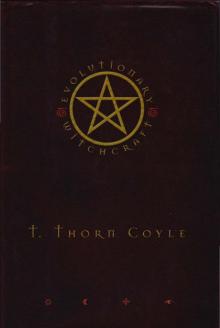 T Thorn Coyle Evolutionary Witchcraft (pdf)
T Thorn Coyle Evolutionary Witchcraft (pdf)![K J Emrick & Kathryn De Winter - [Moonlight Bay Psychic Mystery 01-06] - A Friend in; on the Rocks; Feature Presentation; Manor of; by Chocolate Cake; A-Maze-Ing Death (retail) (epub) Read online](http://freenovelread.comhttps://picture.efrem.net/img/nienyi/k_j_emrick_and_kathryn_de_winter_-_moonlight_bay_psychic_of_by_chocolate_cake_a-maze-ing_death_retail_epub_preview.jpg) K J Emrick & Kathryn De Winter - [Moonlight Bay Psychic Mystery 01-06] - A Friend in; on the Rocks; Feature Presentation; Manor of; by Chocolate Cake; A-Maze-Ing Death (retail) (epub)
K J Emrick & Kathryn De Winter - [Moonlight Bay Psychic Mystery 01-06] - A Friend in; on the Rocks; Feature Presentation; Manor of; by Chocolate Cake; A-Maze-Ing Death (retail) (epub) Next Day of the Condor
Next Day of the Condor Onyx
Onyx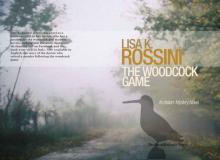 The Woodcock Game: An Italian Mystery Novel
The Woodcock Game: An Italian Mystery Novel Granta 122: Betrayal (Granta: The Magazine of New Writing)
Granta 122: Betrayal (Granta: The Magazine of New Writing) One More Dream
One More Dream Cosa Nostra by Emma Nichols) 16656409 (z-lib.org) (1)-compressed
Cosa Nostra by Emma Nichols) 16656409 (z-lib.org) (1)-compressed Cowboy by J. M. Snyder
Cowboy by J. M. Snyder Colossus
Colossus Star Trek - DS9 011 - Devil In The Sky
Star Trek - DS9 011 - Devil In The Sky Fright Mare-Women Write Horror
Fright Mare-Women Write Horror The Future Is Japanese
The Future Is Japanese In the Witching Hour
In the Witching Hour Mammoth Books presents Wang's Carpets
Mammoth Books presents Wang's Carpets The Cradle King: The Life of James VI and I, the First Monarch of a United Great Britain
The Cradle King: The Life of James VI and I, the First Monarch of a United Great Britain Stalking Moon
Stalking Moon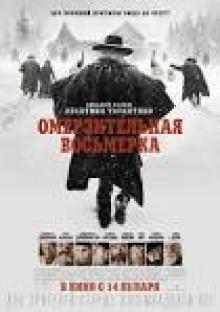 Hostage To The Devil
Hostage To The Devil![Harris, Daisy - Mere Passion [Ocean Shifters 2] (Siren Publishing Classic) Read online](http://i1.bookreadfree.com/i/03/23/harris_daisy_-_mere_passion_ocean_shifters_2_siren_publishing_classic_preview.jpg) Harris, Daisy - Mere Passion [Ocean Shifters 2] (Siren Publishing Classic)
Harris, Daisy - Mere Passion [Ocean Shifters 2] (Siren Publishing Classic) Day, Sunny - Hot in Space (Siren Publishing Ménage and More)
Day, Sunny - Hot in Space (Siren Publishing Ménage and More) Five Books Of The Lives, Heroic Deeds And Sayings Of Gargantua And His Son Pantagruel
Five Books Of The Lives, Heroic Deeds And Sayings Of Gargantua And His Son Pantagruel I Never Thought I'd See You Again: A Novelists Inc. Anthology
I Never Thought I'd See You Again: A Novelists Inc. Anthology Billion dollar baby bargain.txt
Billion dollar baby bargain.txt![Chenery, Marisa - Turquoise Eye of Horus [Egyptian Shifters 1] (Siren Publishing Classic) Read online](http://i1.bookreadfree.com/i1/03/26/chenery_marisa_-_turquoise_eye_of_horus_egyptian_shifters_1_siren_publishing_classic_preview.jpg) Chenery, Marisa - Turquoise Eye of Horus [Egyptian Shifters 1] (Siren Publishing Classic)
Chenery, Marisa - Turquoise Eye of Horus [Egyptian Shifters 1] (Siren Publishing Classic) Cat Magic
Cat Magic Star Trek - DS9 - Warped
Star Trek - DS9 - Warped Catherine Coulter - FBI 1 The Cove
Catherine Coulter - FBI 1 The Cove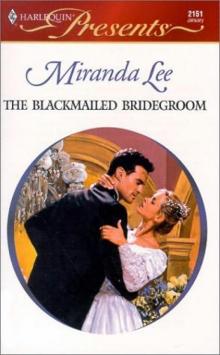 Miranda Lee -The Blackmailed Bridegroom
Miranda Lee -The Blackmailed Bridegroom The Seashell Anthology of Great Poetry
The Seashell Anthology of Great Poetry Dragon Moon
Dragon Moon The Social Costs of Pornography: A Collection of Papers
The Social Costs of Pornography: A Collection of Papers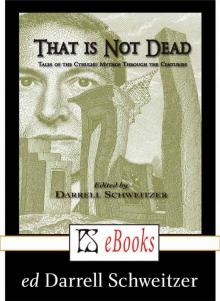 That Is Not Dead
That Is Not Dead Best New Horror: Volume 25 (Mammoth Book of Best New Horror)
Best New Horror: Volume 25 (Mammoth Book of Best New Horror) This Christmas by J. M. Snyder
This Christmas by J. M. Snyder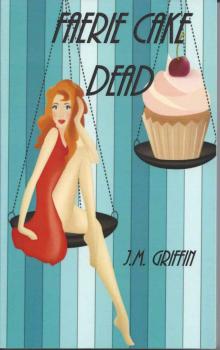 Faerie Cake Dead
Faerie Cake Dead CS-Dante's Twins
CS-Dante's Twins EFD1: Starship Goodwords (EFD Anthology Series from Carrick Publishing)
EFD1: Starship Goodwords (EFD Anthology Series from Carrick Publishing) Echo Burning by Lee Child
Echo Burning by Lee Child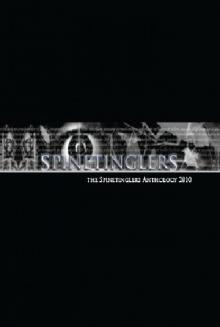 The Spinetinglers Anthology 2010
The Spinetinglers Anthology 2010 Wild Hearts
Wild Hearts Violet Winspear - Sinner ...
Violet Winspear - Sinner ... Broken Angels
Broken Angels FearNoEvil
FearNoEvil![Santiago, Lara - Range War Bride [Tasty Treats 11] (Siren Publishing PolyAmour) Read online](http://i1.bookreadfree.com/i1/03/30/santiago_lara_-_range_war_bride_tasty_treats_11_siren_publishing_polyamour_preview.jpg) Santiago, Lara - Range War Bride [Tasty Treats 11] (Siren Publishing PolyAmour)
Santiago, Lara - Range War Bride [Tasty Treats 11] (Siren Publishing PolyAmour) 8 Great Hebrew Short Novels
8 Great Hebrew Short Novels This Is How You Die: Stories of the Inscrutable, Infallible, Inescapable Machine of Death
This Is How You Die: Stories of the Inscrutable, Infallible, Inescapable Machine of Death The Steampowered Globe
The Steampowered Globe While We Wait by J. M. Snyder
While We Wait by J. M. Snyder Iron Tongue cr-4
Iron Tongue cr-4![Stieg Larsson [Millennium 02] The Girl Who Played with Fire v5.0 (LIT) Read online](http://i1.bookreadfree.com/i1/03/31/stieg_larsson_millennium_02_the_girl_who_played_with_fire_v5_0_lit_preview.jpg) Stieg Larsson [Millennium 02] The Girl Who Played with Fire v5.0 (LIT)
Stieg Larsson [Millennium 02] The Girl Who Played with Fire v5.0 (LIT) The Spinetinglers Anthology 2009
The Spinetinglers Anthology 2009 Bowles, Jan - Branded by the Texas Rancher (Siren Publishing Classic)
Bowles, Jan - Branded by the Texas Rancher (Siren Publishing Classic) Brown, Berengaria - Vivienne's Vacation (Siren Publishing Ménage and More)
Brown, Berengaria - Vivienne's Vacation (Siren Publishing Ménage and More) Inheritors
Inheritors Arthur Conan Doyle: A Life in Letters
Arthur Conan Doyle: A Life in Letters Cunningham, Pat - Coyote Moon (BookStrand Publishing Romance)
Cunningham, Pat - Coyote Moon (BookStrand Publishing Romance) Static Line
Static Line Ghost Mysteries & Sassy Witches (Cozy Mystery Multi-Novel Anthology)
Ghost Mysteries & Sassy Witches (Cozy Mystery Multi-Novel Anthology) Elizabeth Neff Walker - Puppy Love
Elizabeth Neff Walker - Puppy Love Ghosts in the Machine
Ghosts in the Machine Theater of the Crime (Alan Stewart and Vera Deward Murder Mysteries Book 6)
Theater of the Crime (Alan Stewart and Vera Deward Murder Mysteries Book 6) Red Satin Lips, Book One (The Surrender Series)
Red Satin Lips, Book One (The Surrender Series) Catherine Coulter - FBI 4 The Edge
Catherine Coulter - FBI 4 The Edge StateoftheUnion
StateoftheUnion Fantastic Women: 18 Tales of the Surreal and the Sublime from Tin House
Fantastic Women: 18 Tales of the Surreal and the Sublime from Tin House Sara Wood-Expectant Mistress original
Sara Wood-Expectant Mistress original Nine-to-Five Fantasies: Tales of Sex on the Job
Nine-to-Five Fantasies: Tales of Sex on the Job Granta 133
Granta 133 Dream Quest
Dream Quest The Warlock in Spite of Himself wisoh-2
The Warlock in Spite of Himself wisoh-2 Glenn, Stormy - Mating Heat (Siren Publishing Ménage Amour)
Glenn, Stormy - Mating Heat (Siren Publishing Ménage Amour) Davis, Lexie - Toys from Santa (Siren Publishing Classic)
Davis, Lexie - Toys from Santa (Siren Publishing Classic) Once Dead, Twice Shy
Once Dead, Twice Shy McSweeney's Enchanted Chamber of Astonishing Stories
McSweeney's Enchanted Chamber of Astonishing Stories Zombies: Shambling Through the Ages
Zombies: Shambling Through the Ages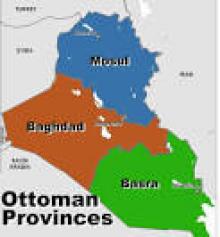 Baghdad Without a Map
Baghdad Without a Map Banshee Cries (the walker papers)
Banshee Cries (the walker papers)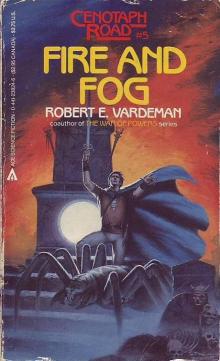 Fire and Fog cr-5
Fire and Fog cr-5 The Twelve Hot Days of Christmas
The Twelve Hot Days of Christmas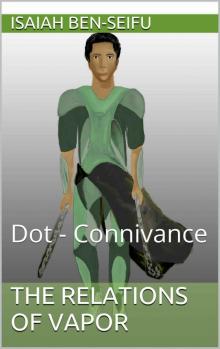 The Relations of Vapor: Dot - Connivance
The Relations of Vapor: Dot - Connivance![Harris, Daisy - Mere Temptation [Ocean Shifters 1] (Siren Publishing Classic) Read online](http://i1.bookreadfree.com/i2/04/11/harris_daisy_-_mere_temptation_ocean_shifters_1_siren_publishing_classic_preview.jpg) Harris, Daisy - Mere Temptation [Ocean Shifters 1] (Siren Publishing Classic)
Harris, Daisy - Mere Temptation [Ocean Shifters 1] (Siren Publishing Classic) World of Mazes cr-3
World of Mazes cr-3 Mistaken Identity (A Jules Poiret Mystery Book 26)
Mistaken Identity (A Jules Poiret Mystery Book 26) Star Trek - DS9 - Fall of Terok Nor
Star Trek - DS9 - Fall of Terok Nor Not Like I'm Jealous or Anything: The Jealousy Book (Ruby Oliver)
Not Like I'm Jealous or Anything: The Jealousy Book (Ruby Oliver) Skaterboy by J. M. Snyder
Skaterboy by J. M. Snyder The Sorcerer_s Skull cr-2
The Sorcerer_s Skull cr-2 The Columbia Anthology of Modern Japanese Literature (Modern Asian Literature Series)
The Columbia Anthology of Modern Japanese Literature (Modern Asian Literature Series) New Erotica 5
New Erotica 5 Catherine Coulter - FBI 3 The Target
Catherine Coulter - FBI 3 The Target Best Sex Writing 2013: The State of Today's Sexual Culture
Best Sex Writing 2013: The State of Today's Sexual Culture Factoring Humanity
Factoring Humanity Huia Short Stories 11
Huia Short Stories 11 Call of the Wilds
Call of the Wilds Great English Short Stories (Dover Thrift Editions)
Great English Short Stories (Dover Thrift Editions)![Ramagos, Tonya - Logan's Lessons [Sunset Cowboys 2] (Siren Publishing Classic) Read online](http://i1.bookreadfree.com/i2/04/10/ramagos_tonya_-_logans_lessons_sunset_cowboys_2_siren_publishing_classic_preview.jpg) Ramagos, Tonya - Logan's Lessons [Sunset Cowboys 2] (Siren Publishing Classic)
Ramagos, Tonya - Logan's Lessons [Sunset Cowboys 2] (Siren Publishing Classic)![Morgan, Nicole - Sweet Redemption [Sweet Awakenings 1] (Siren Publishing Allure) Read online](http://i1.bookreadfree.com/i2/04/10/morgan_nicole_-_sweet_redemption_sweet_awakenings_1_siren_publishing_allure_preview.jpg) Morgan, Nicole - Sweet Redemption [Sweet Awakenings 1] (Siren Publishing Allure)
Morgan, Nicole - Sweet Redemption [Sweet Awakenings 1] (Siren Publishing Allure) Warbirds of Mars: Stories of the Fight!
Warbirds of Mars: Stories of the Fight! Original Version of Edited Godwin Stories(lit)
Original Version of Edited Godwin Stories(lit) Where The Hell is Boulevard?
Where The Hell is Boulevard?![Chemical [se]X Read online](http://i1.bookreadfree.com/i2/04/13/chemical_sex_preview.jpg) Chemical [se]X
Chemical [se]X Allison Brennan - See No Evil
Allison Brennan - See No Evil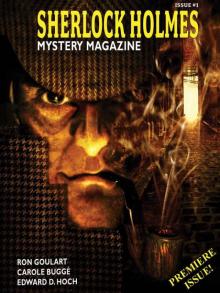 Sherlock Holmes Mystery Magazine #1
Sherlock Holmes Mystery Magazine #1